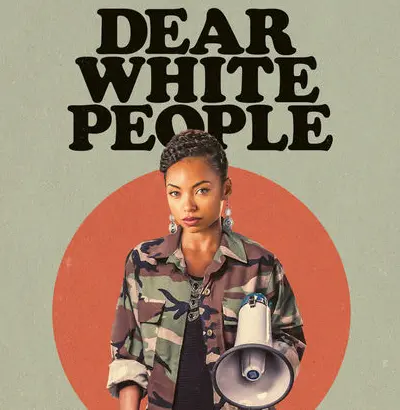Dear White People creator on making the final season a 1990s musical event: “I just really wanted to"
-

“We found out that the show was coming back and that it was ending all in the same moment, and so I wanted [to do] something that was going to feel worthy of an ending that we also couldn’t have had the benefit of building to because we never knew we were coming back every time the show came out,” Justin Simien tells TVLine. “It was one of two things that we had never quite gotten to do but wanted to do since Season 1. When we got to the final season, it was like, ‘Well, you know, make an event of the end of Dear White People. Let’s just do it for the whole season altogether.'” Simien adds, in a separate interview with Entertainment Tonight: "Part of it is, that's what was in my soul. That's what I needed to do at the time...But the intellectual smarty-pants answer is that the '90s is such a clear flashpoint for Black culture, particularly with music. You see it in film, too. We were coming out of the post-Do the Right Thing moment of Black film and, suddenly, there were three Black filmmakers working in Hollywood at the same time. And it feels like this big cultural renaissance, but at the same time, once you get to the end of the '90s, what was the renaissance has now become a bit of a trap."
ALSO:
- Justin Simien and co-showrunner Jaclyn Moore point out Dear White People predicted Trump, COVID and much more: “Police violence and weaponizing was something our show was concerned about since Season 1, and I think what we started to feel was there was this sense that suddenly a lot of the things we had been saying on the show were becoming more and more a mainstream conversation,” says Moore. “We were drawn to the ways in which predominantly white institutions were pretending to be on the forefront of that conversation and using Black folks and people of color as a PR shield at times. And so, that was the last piece of it that really felt like it really connected to this, which is Winchester, turning around and starting to use them. The problem is you’re gaining power, but at what cost?”
- Ranking Dear White People's final season musical moments
TOPICS: Dear White People, Netflix, Jaclyn Moore, Justin Simien, Series Finales
More Dear White People on Primetimer:- Dear White People executive producer Jaclyn Moore says she's "done" with Netflix over Dave Chappelle's transphobic jokes
- Dear White People strayed too far from its original concept in its last two seasons
- Dear White People creator initially fought against including 'NSYNC's "Bye Bye Bye" in the 1990s musical final season
- Dear White People reality TV parody "Big House" crowns a Black winner as Big Brother prepares to do the same in real life
